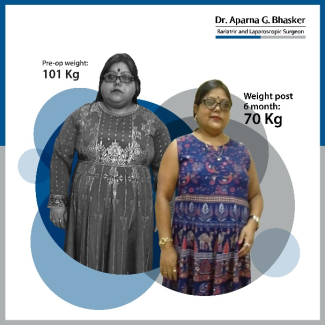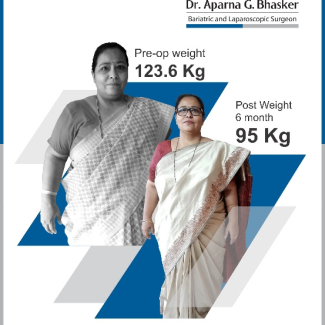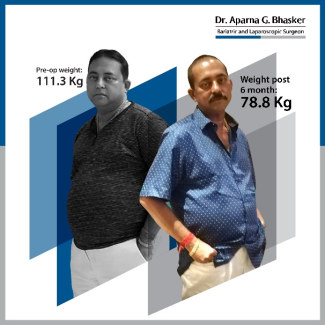
Bariatric Surgery Bangladesh
- Home
- Bariatric Surgery Bangladesh
Bariatric Surgery Bangladesh
Obesity in Bangladesh
Obesity is one of the fastest growing epidemics in the world and till now no country has been able to decrease the rates of obesity. In Bangladesh approximately 19% people suffer from being overweight and about 4.6% people suffer from obesity. Prevalence of both overweight and obesity is higher among Bangladeshi women as compared to men. In the last few decades, Bangladesh has experienced a shift in the lifestyle and diet habits of its people. With increasing urbanisation, the rates of being over-weight and obese have also increased.
Definition of obesity
World Health Organization defines obesity as an abnormal collection of fat that leads to health risks. Obesity is a chronic progressive disease. Health risks that are associated with obesity, affect each and every part of the human body. Diseases associated with obesity are listed below:
- Type 2 diabetes
- High blood pressure
- Dyslipidaemia
- Heart disease
- Increased risk of stroke
- Raised intra-cranial hypertension
- Fatty liver, non-alcoholic steato-hepatitis, cirrhosis of liver
- Obstructive sleep apnoea, other lung related issues
- PCOD, infertility
- Increased risk of some cancers like breast cancer, endometrial cancer of the uterus, lung cancer, prostrate cancer and colon cancer
- Gout
- Depression, psycho-social issues
- Varicose veins, venous thrombo-embolism
- Gall bladder stones
- Hernia
- Joint related issues
- Nutritional deficiencies
- Others
Classification of obesity
Nutrition status of a person is classified as per the body mass index (BMI)-
BMI= weight in kg/height in m2
| Nutrition Status | BMI cut off (Kg/m2) |
|---|---|
| Underweight | <18 |
| Normal | 18.5-22.9 |
| Overweight | 23-24.9 |
| Pre obese | 25-29.9 |
| Obese | ≥30 |
| Obese type 1 | 30-40 |
| Obese type 2 (morbid obese) | 40.1-50 |
| Obese type 3 (Super obese) | >50 |
Source- Adapted from WHO 2004
It has been observed that with increasing BMI and grade of obesity, the risk of associated diseases as mentioned above also goes up. Hence it is very important to identify the stage of the disease and advise treatment accordingly.
Treatment pyramid of obesity
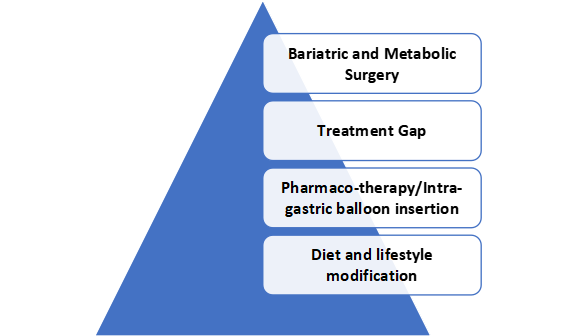
What is bariatric/metabolic surgery?
Bariatric/metabolic surgery is a group of gastro-intestinal operations which include reducing the size of the stomach with or without re-routing the small intestine. These operations are performed primarily for weight loss and also lead to improvement in other diseases associated with obesity.
Dr. Aparna Govil explains about bariatric surgery in this video-
There are many types of bariatric/metabolic operations but five are approved as standard operations by the International Federation for Surgery of Obesity and Metabolic Disorders (IFSO).The standard bariatric/metabolic operations include:
- Laparoscopic adjustable gastric banding
- Laparoscopic sleeve gastrectomy
- Laparoscopic Roux en y gastric bypass
- Laparoscopic mini gastric bypass/ one anastomosis gastric bypass
- Laparoscopic duodenal switch
In this video Dr. Aparna Govil Bhasker explains about the various types of weight loss surgeries:

Patient review- Mr. Pradeep Seth talks about his weight-loss journey in Bangla-
Patient review- Ms. Rupa Sen Chaudhary speaks about her weight loss journey in Bangla-
Technique of performing bariatric/metabolic surgery in Bangladesh
Bariatric/metabolic surgery in Bangladesh is performed through laparoscopy. Laparoscopic surgery is basically key-hole surgery in which the entire operation is performed through tiny cuts. A camera and instruments are inserted through these tiny cuts and the surgeon performs the surgery looking at a monitor. Some types of bariatric surgeries can also be done through single cut- single incision surgery. In this technique just one single 2 cm cut is made in the navel and the entire surgery is performed through that.

Bariatric and Metabolic Surgery indications in Bangladesh
- Bariatric and metabolic surgery is advised for patients with a BMI ≥ 35 Kg/m2 with or without any associated diseases.
- Bariatric and metabolic surgery is advised for patients with a BMI ≥ 30 Kg/m2 with 2 or more associated diseases.
- Bariatric and metabolic surgery may be advised for patients with a BMI ≥ 27.5 Kg/m2 with uncontrolled type 2 diabetes despite optimum medical management.
- Bariatric and metabolic surgery can be advised for patients between the age of 18 years to 65 years. However, in case of patients with age less than 18 years, it may sometimes need to be advised if all other options for weight loss have been exhausted. If the patient has attained optimum bone growth, he or she may be advised surgery as an option. Same holds true for patients with age more than 65 years. If they are medically fit for surgery and their quality of life can improve, then they must not be denied the benefit of surgery.
Who is not eligible for bariatric/metabolic surgery in Bangladesh
- Patients who are medically unfit
- Patients suffering from a terminal illness
- Patients suffering from advanced stages of cancer
- Smoking must be stopped before surgery
- Pregnant patients
- Patients with severe psychological problems
- Others
How does bariatric/metabolic surgery work?
Bariatric surgery/metabolic surgery leads to weight-loss through multiple mechanisms. These are listed as under:
- Restriction of food intake
- Early satiety
- Decreased appetite
- Mal-absorption in some of the surgeries
- Bile acid interactions
- Changes in gut flora
- Neuro-hormonal changes
- Others
Recovery after bariatric/metabolic surgery
Bariatric/metabolic surgery is done laparoscopically and hence the recovery is much faster as compared to any other open abdominal surgery. Laparoscopic surgery is less painful, leads to early recovery, early discharge from hospital and early return to work.
Dietary changes after bariatric/metabolic surgery
Diet after bariatric/metabolic surgery progresses in 4 phases:
- Phase 1: Day 1 and day 2- Clear liquid diet
- Phase 2: Day 3 to day 15 – Full liquid diet
- Phase 3: Day 16 to day 30- Soft and pureed diet
- Phase 4: Day 31 onwards- Full diet (in restricted quantities)
Our team of dieticians will be there with you throughout to guide you through all the phases. Our team is there to support you and is very approachable in case you have any doubts at any stage.
Weight loss results after bariatric/metabolic surgery
Most patients lose about 60 to 80% of their excess weight after bariatric/metabolic surgery. weight loss happens over a period of 12 to 18 months and is gradual.
What is the improvement in associated diseases after bariatric/metabolic surgery?
Bariatric/metabolic surgery not only leads to significant weight loss but also leads to improvement in all the associated diseases of obesity. The following table delineates the percentage improvement in various associated diseases after bariatric/metabolic surgery:
| SN | OBESITY ASSOCIATED DISEASES | EFFECT OF BARIATRIC SURGERY | PERCENTAGE IMPROVEMENT |
| 1 | Quality of life | Improves | Upto 95% |
| 2 | Relative risk of mortality | Decreases | Upto 89% in 5 years |
| 3 | Metabolic Syndrome | Improves | Upto 80% |
| 4 | Type 2 diabetes | Improves | 82 -98% |
| 5 | High blood pressure | Improves | 60 -70% |
| 6 | Hypercholesterolemia | Improves | 60-65% |
| 7 | Risk of heart disease | Decreases | |
| 8 | Obstructive sleep apnoea | Improves | 74 – 98% |
| 9 | PCOD | Improves | Upto 75% |
| 10 | Venous stasis disease | Improves | Upto 95% |
| 11 | Osteo-arthritis/Joint disease | Improves | Upto 41% |
| 12 | Urinary stress incontinence | Improves | Upto 44% |
| 13 | Depression | Improves | Upto 47% |
| 14 | Gout | Improves | Upto 72% |
| 15 | Infertility | Improves |
Is bariatric/metabolic surgery safe?
Bariatric/metabolic surgery is as safe as any other surgery. The risk rate is similar to that of gall bladder surgery or a knee replacement surgery. Overall risk rate is about 1%. The doctor and her team will counsel you in detail at the time of consultation and all the pros and cons will be explained to you before the surgery. In the following video Dr. Aparna Govil Bhasker explains the risks and complications associated with bariatric surgery:
Some facts and myths about bariatric surgery:
In this video Mariam Lakdawala speaks about the importance of follow up-
Follow up after bariatric/metabolic surgery
Long term success of bariatric/metabolic surgery depends on the regularity of follow up. Our team puts in tremendous effort in ensuring a good follow up for all our patients. Good compliance with nutritional supplements including protein, timely tests and follow up consultations along with diet and lifestyle modification go a long way in weight maintenance. As a team our goal is not just weight loss but overall health and wellness of our patients. In this age of technology, we use all possible platforms to remain connected with you and you will get regular reminders from us for scheduling your follow ups. However, we do believe that this is a shared responsibility and the onus is also on our patients to take their health seriously. Patients who co-operate and are responsible tend to fare much better in the long term.


Support group meetings
Support group meetings are very important after bariatric/metabolic surgery. Patients share their experiences and weight loss journey in these meetings. It helps them to stay motivated in the long term. It has been seen that patients who sincerely attend support group meetings after bariatric/metabolic surgery, are able to maintain their weight better. We organize 6 support groups meetings every year and it is advisable to attend atleast 2 of these.
Cost of bariatric/metabolic surgery
Cost of bariatric/metabolic surgery depends on many factors. It will depend on the hospital where the surgery is performed, the type of room chosen, the type of surgery performed and the duration of stay in the hospital. In general, we have affordable costing for our patients. The specifics of cost will be discussed at the time of consultation.
Where will the surgery be performed?
We have centres in Kolkata and Mumbai in India and the surgery can be performed in either of the cities. Please get in touch with us for further details.
Last but not the least
Obesity is a serious disease that affects the body from head to toe. Treatment of obesity must be done as per the stage of the disease. Bariatric/metabolic surgery is currently the only valid treatment option for severe obesity. However, bariatric/metabolic surgery is a lifelong commitment for you and us. Best results are seen in patients who embrace lifestyle modification and comply with the advice given. As a team, we are there to help you at every juncture and will provide all possible support to you.
About Dr. Aparna Govil Bhasker
Dr. Aparna Govil Bhasker is an accomplished Bariatric Surgeon and Laparoscopic GI Surgeon. Extremely passionate about her field of specialization. She completed her MBBS and MS in General Surgery in 2006, from Mahatma Gandhi Institute of Medical Sciences (MGIMS), Sewagram. Set up in 1967 by none other than the first health minister of India, Ms. Sushila Nayar, MGIMS is deeply rooted in Gandhian ethics. Read more


Surgeon in India


Bariatric Surgery: Pros and Cons
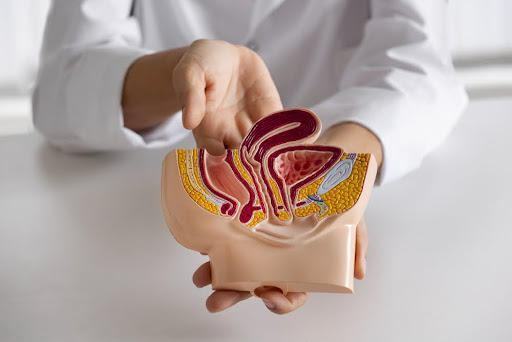
Types of Hernias and Their Treatment Options Explained
- Intra-Gastric Balloon Insertion Surgery
- Laparoscopic Adjustable Gastric Banding Surgery
- Gastric Sleeve Surgery / Laparoscopic Sleeve Gastrectomy
- Single Incision Sleeve Gastrectomy Surgery
- Laparoscopic Roux-en Y Gastric Bypass Surgery
- Laparoscopic Banded Roux-en Y Gastric Bypass Surgery
- Laparoscopic Mini Gastric Bypass Surgery /Omega Loop Bypass
- Laparoscopic Sleeve Gastrectomy with Duodeno-Jejunostomy Surgery
- Laparoscopic Duodenal Switch Surgery
- Laparoscopic Sleeve Gastrectomy with Duodenal Ileostomy (SADI) Surgery
- Laparoscopic Revisional/Redo Bariatric Surgery
- Metabolic Surgery for Diabetes
- Terms & Conditions
- Privacy Policy
- Sitemap
